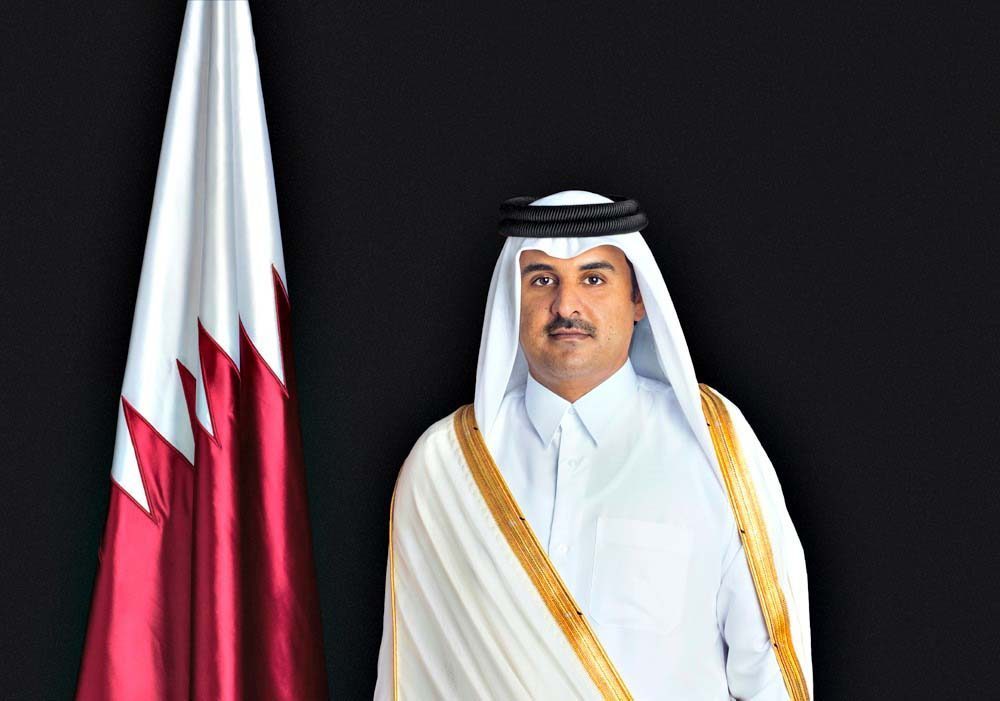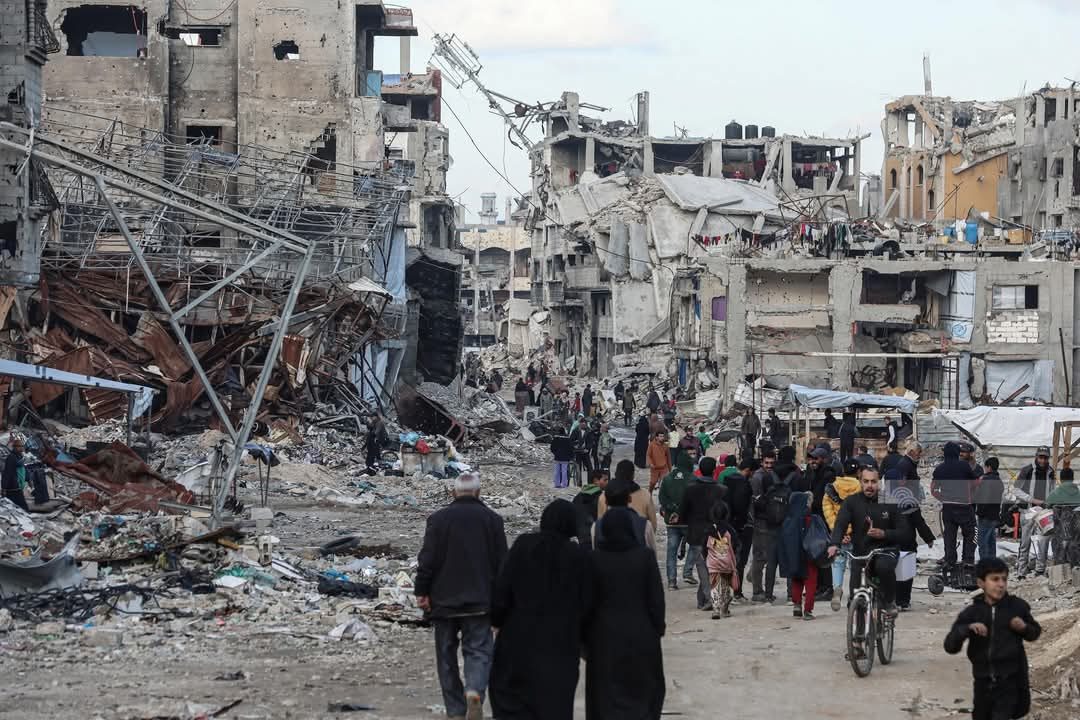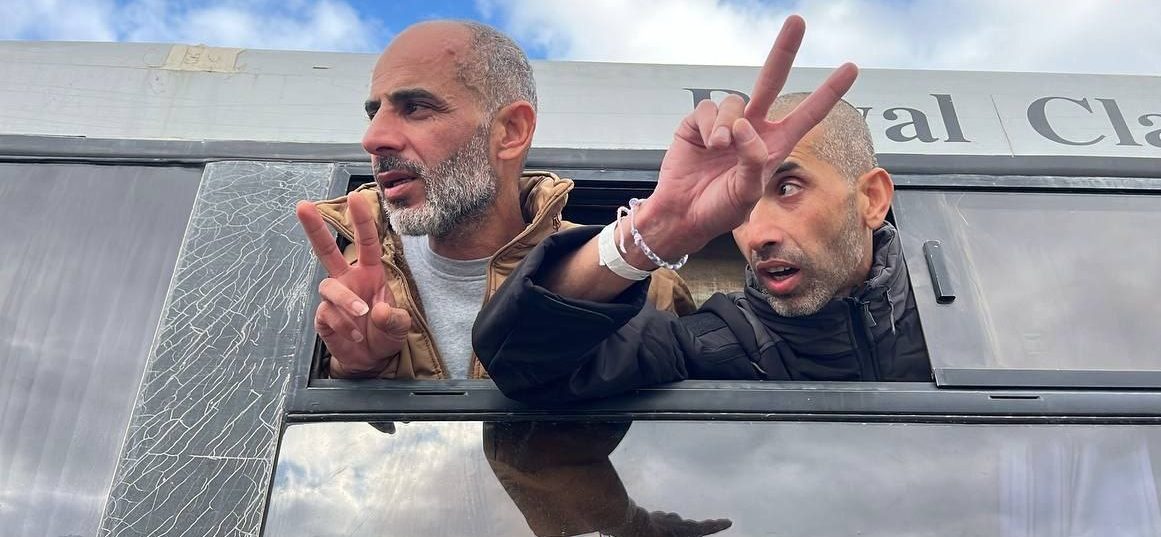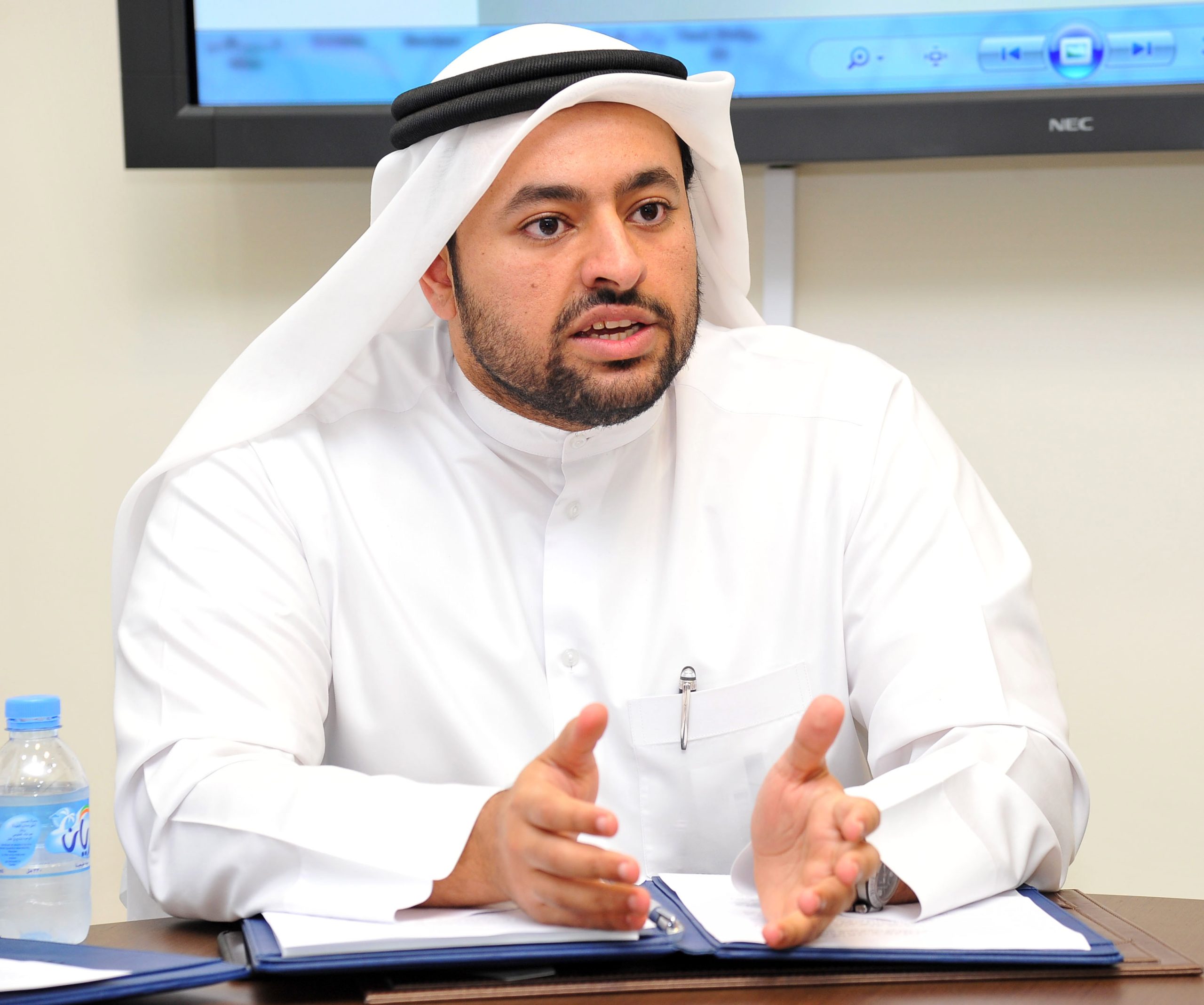
Two years after assuming power in one of the region’s most peaceful government handovers, Sheikh Tamim bin Hamad Al Thani has been guiding Qatar through one of the country’s most turbulent periods in recent history.
Only months after being named Emir by his father, Sheikh Tamim found himself at the center of the GCC’s worst diplomatic crisis in a decade.
Meanwhile, the Gulf country also faces mounting criticism over its 2022 World Cup bid and has watched oil prices – which affect much of the nation’s wealth – tumble dramatically.

In response to these challenges, Sheikh Tamim has worked to mend fences with Qatar’s closest allies, rein in government spending and improve the country’s image abroad.
Many of these efforts have required spearheading new initiatives. However, in other policy areas, there remains a high degree of continuity between Sheikh Tamim and his father, the former Emir Sheikh Hamad bin Khalifa Al Thani.
Here’s what’s changed and what’s stayed the same during Sheikh Tamim’s second year in power:
What’s changed

DIPLOMATS RETURN TO DOHA
Barely eight months after Sheikh Tamim became Emir, Bahrain, Saudi Arabia and the UAE withdrew their ambassadors from Doha in a rare public show of displeasure for Qatar’s foreign policy.
The three countries accused Qatar of violating an agreement among GCC members not to interfere in the internal affairs of fellow states, which was widely interpreted as criticism of Doha’s support for the Muslim Brotherhood.
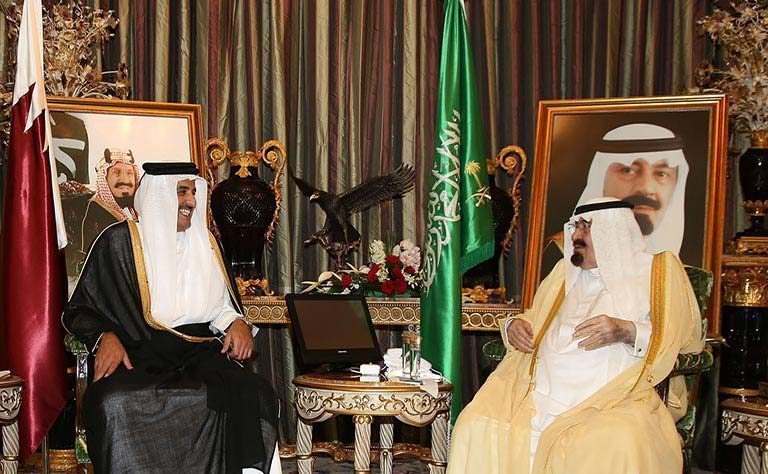
During the diplomatic row, Sheikh Tamim met several times with the Saudi Arabia’s now-deceased King Abdullah bin Abdulaziz al-Saud, a veteran government ruler who was more than 50 years older than Qatar’s Emir.
While initial reports suggested these meetings failed to heal the rift, they were followed by a formal end to the dispute several weeks later when the GCC leaders met in Riyadh in November.
It’s not completely clear what concessions Qatar made, although the country made several moves interpreted as attempts to appease its neighbors, including:
- Passing new cybercrime legislation, which was said to be part of an an agreement among Gulf states to criminalize online insults of the region’s royal families;
- Clamping down on charities that send funds abroad that some saw as an attempt to reduce the amount of money flowing through the Gulf state to certain fighters in Syria; and
- The departure of several senior members of the Muslim Brotherhood from Qatar, a move they say was requested by the Gulf state.
There are signs that relations between Qatar and some of its Gulf neighbors have since improved.
In May, the UAE agreed to pardon a Qatari doctor who was convicted of supporting the Muslim Brotherhood only months after it pulled its national team from the Men’s Handball World Championship being held in Qatar.
GOVERNMENT SHAKEUP CONTINUES
Sheikh Tamim’s first year in power saw several new faces assume senior government positions and a revamp of some of Qatar’s ministries and councils.

During his second year as Emir, Sheikh Tamim named a Deputy Emir for the first time, his half-brother Sheikh Abdullah bin Hamad Al Thani.
Prior to being named Deputy Emir, Sheikh Abdullah was chief of the Emiri Diwan, Qatar’s seat of government.
Filling the vacant post is Sheikh Khalid bin Khalifa bin Abdul Aziz Al Thani, who Sheikh Tamim previously appointed director of the office of the Emir the month he came into power.
There have been no reports of Sheikh Tamim naming an heir apparent.
SPENDING RESTRAINT
The same day he named a Deputy Emir, Sheikh Tamim gave a speech to mark the opening session of the Qatar’s Advisory (Shura) Council.
During the talk, he promoted austerity as a virtue and denounced financial mismanagement:
“Waste, extravagance, mishandling of state funds, lack of respect for the budget, reliance on the availability of money to cover up mistakes are all behaviors that must be disposed of, whether oil prices are high or low … Reasonable spending is an economic matter … (and is) also related to the type of society that we want and the type of individual that we rear in the State of Qatar.”
There are signs Sheikh Tamim’s message resonated with government managers. Statistics released this month show spending on wages and salaries fell in 2014-15 for the first time in a decade.

Meanwhile, several large-scale projects not directly related to the World Cup have been canceled or postponed. Among the most prominent is the Sharq Crossing series of tunnels and bridges, construction of which was scheduled to start this year.
COMMUNICATING WITH CRITICS
Over the past two years, Qatar has become more vocal in response to intense media and political criticism over several issues. That includes the treatment of migrant workers, accusations of bribery related to its World Cup bid and allegations that it turns a blind eye to individuals raising money for armed groups in Syria.
Last August, industry journal PRWeek reported that Qatar had hired UK-based Portland Communications to advise senior levels of the government.
In the following months, Qatar went on the offensive by publishing a series of newspaper op-eds and making several media appearances.
That included a column attributed to Qatar’s prime minister in the Guardian newspaper on the eve of the Emir’s visit to London under the headline, “Qatar and the UK stand together in the fight against terrorism.”
Similarly, an op-ed appeared under Sheikh Tamim’s name in the New York Times just before the Emir’s first official visit to the White House.
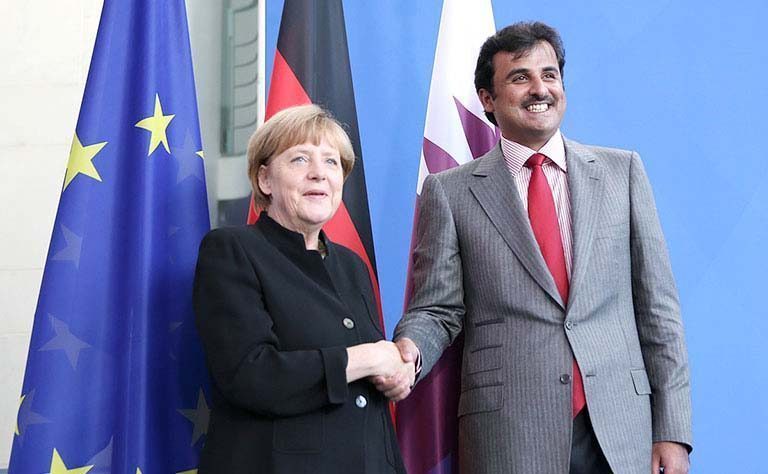
And after keeping a relatively low public profile during his first year in power, the Emir made two televised media appearances last September by appearing in a joint news conference with German Chancellor Angela Merkel and then sitting down for a one-on-one interview with CNN.
This year, a Government Communications Office was officially established and has responded to the arrest of a BBC journalist in the Industrial Area and a controversial Washington Post graphic on expat deaths in Qatar.
What’s stayed the same

NO KAFALA CHANGES
In his September CNN interview, Sheikh Tamim decried the abuse of low-income workers in Qatar as unacceptable. Speaking to journalist Christiane Amanpour, he said:
“I don’t accept it personally to see laborers, poor people, coming from other countries to come and help us develop our country and the atmosphere and the environment isn’t helpful for them.”
He later added, “I’m personally hurt about the situation. I don’t accept that. Not even one Qatari accepts that.”

Since then, the government has hired more labor inspectors and moved to mandate companies to pay employees electronically, although that measure is not yet in effect.
However, there have been no changes to Qatar’s controversial kafala sponsorship system, which human rights advocates say enables the exploitation of expats by creating a highly unequal power relationship between foreigners and their sponsors.
Reforms were proposed in May 2014, but this week, Qatar’s influential Advisory (Shura) Council said there was no rush in pushing through the changes and recommended that the new law be studied further.
In March, Amnesty International released a report that concluded that “very little has changed” for Qatar’s low-income workers in recent years.
GLOBAL MEDIATOR
In some respects, Qatar’s approach to external affairs under Sheikh Tamim’s foreign minister, Dr. Khalid Al-Attiyah, is markedly different and more low-key than his outspoken predecessor – Sheikh Hamad bin Jassim Al Thani – who used Qatar’s vast wealth to inject itself in conflicts in Egypt, Libya and other countries.
However, some analysts say Qatar is following a long-term strategy of gaining favor with various states and groups by working as an effective global mediator.
“Qatar is showing that they are trying to do the right thing,” Michael Stephens, a researcher at Royal United Services Institute Qatar, told Doha News in August. “This makes Qatar look like the good guys and makes itself useful” to its allies such as the US, he added.
For example, earlier this month, the US officially announced a deal with Qatar to extend the travel ban on five former Taliban prisoners living in the Gulf state.

By extending its offer to host the men – who were released from Guantanamo Bay in exchange for US Army Sgt. Bowe Bergdahl in 2014 – Qatar helped US officials mute criticism that the Taliban members could return to the battlefield.
Other recent efforts include helping to secure the release of US journalist Peter Theo Curtis last August. Curtis had been held captive by al-Nusra Front – an armed Syrian group with ties to al Qaeda – for nearly two years.
Additionally, Qatar negotiated the release from Syria of several Greek Orthodox nuns in March 2014 and nine Lebanese men in 2013.
ARMS BUILDUP
Like many of its Gulf peers, Qatar has continued to ramp up defense spending, as well as flexing its military might.
In late April, Qatar finalized an agreement to buy 24 fighter jets from French manufacturer Dassault in a deal reportedly worth €6.3 billion (QR25.7 billion).
It was the latest multibillion-riyal military purchase for Qatar and followed a QR87 billion (US$23.89 billion) spending spree in March 2013 for new tanks, helicopters, warships, missiles and artillery at a major military trade show in Doha.
While the nation’s ambassador to the US has said the weapons are needed “to defend Qatar,” the country has shown that it’s willing to go on the offensive.

Last September, Qatar’s Emiri Air Force took to the skies above Syria in support of military planes from the US and four Arab nations bombing ISIL targets.
More recently, Qatar participated in a Saudi-led military offensive against Houthi rebels in Yemen.
What’s ahead
The current term of Qatar’s powerful Advisory (Shura) Council ends in July 2016, raising the question of whether Sheikh Tamim will extend its mandate – as permitted under the Constitution when it is “in the public’s best interest” – or fulfill his father’s promise to hold legislative elections.
Citizens were supposed to go to the polls to elect two-thirds of the council’s 45 members in 2013, but Sheikh Hamad extended its mandate instead as he abdicated his post.

Qataris went to the polls in May to elect members of the Central Municipal Council (CMC). Some citizens who turned up to cast a ballot said they hoped their participation would show that there is “aspiration for (an elected) parliament and more elected bodies in Qatar.”
While turnout was heavy at some polling stations, overall voter registration was low. Many attributed this to the fact that the CMC can only make recommendations and does not have the power to draft new laws.
Others, however, have suggested that many Qataris are content with the country’s development and see no need to hold elections. Indeed, only 8 percent of Qataris believe having more say is a national priority, according to a 2012 survey on life in Qatar.
What changes have you noticed since Sheikh Tamim came to power? Thoughts?

